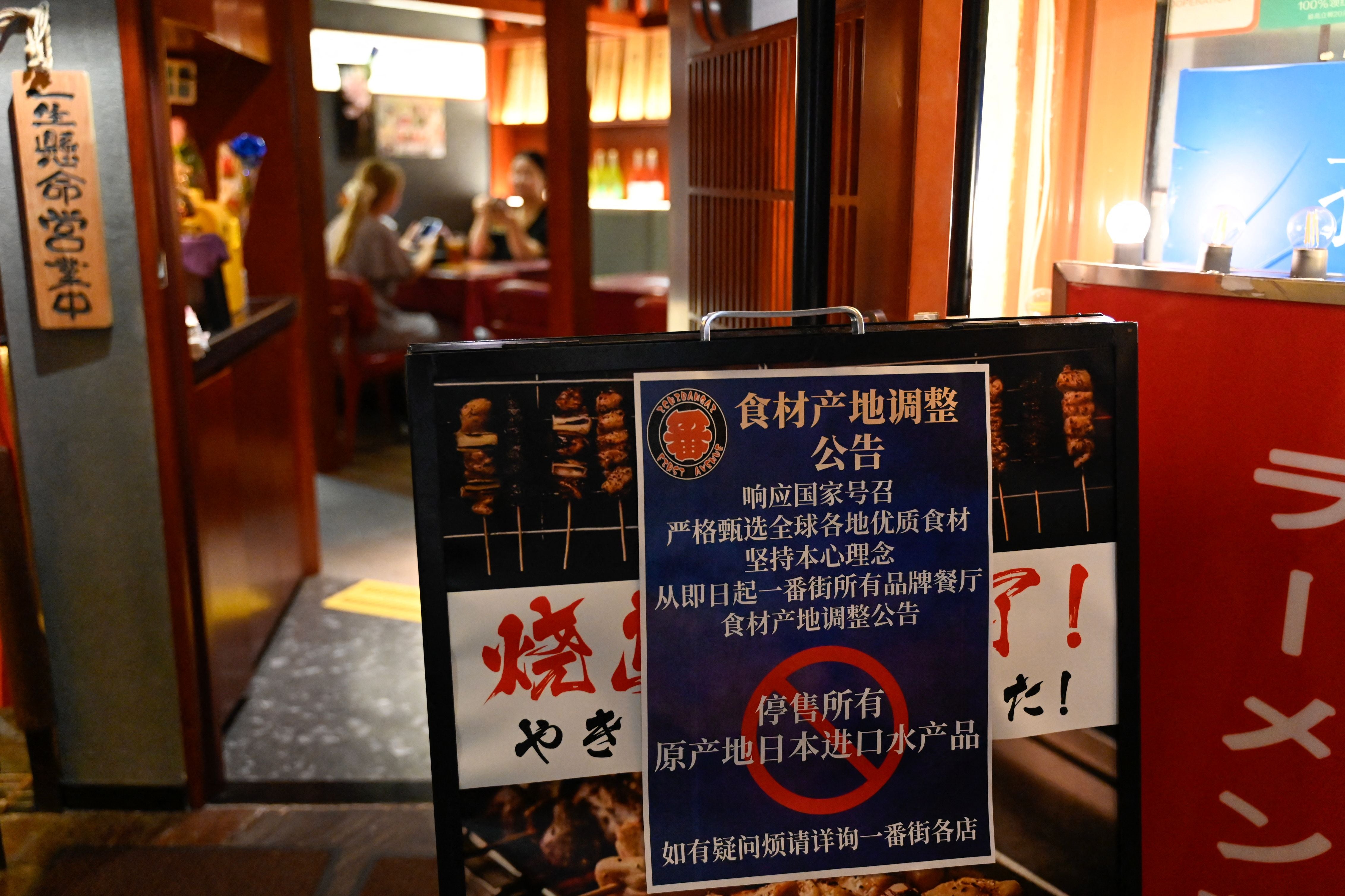China bombards Japanese businesses with spam phone calls over Fukushima nuclear wastewater
Japan urges its citizens in China to avaoid speaking Japanese loudly
Your support helps us to tell the story
From reproductive rights to climate change to Big Tech, The Independent is on the ground when the story is developing. Whether it's investigating the financials of Elon Musk's pro-Trump PAC or producing our latest documentary, 'The A Word', which shines a light on the American women fighting for reproductive rights, we know how important it is to parse out the facts from the messaging.
At such a critical moment in US history, we need reporters on the ground. Your donation allows us to keep sending journalists to speak to both sides of the story.
The Independent is trusted by Americans across the entire political spectrum. And unlike many other quality news outlets, we choose not to lock Americans out of our reporting and analysis with paywalls. We believe quality journalism should be available to everyone, paid for by those who can afford it.
Your support makes all the difference.Japan has summoned the Chinese ambassador to register a diplomatic protest after Japanese institutions and businesses were flooded with harassing phone calls from Chinese numbers over the release of Fukushima's treated radioactive wastewater.
Japan on Thursday began releasing more than 1 million metric tonnes of treated radioactive water, enough to fill 500 Olympic-sized swimming pools, in a move vehemently opposed by China and opposition parties in South Korea.
Since then, Japanese government offices, schools, and even restaurant chains have received hundreds of calls with speakers on the other side using abusive language to register their protest.
Stones were thrown at a Japanese school in Qingdao last week, while another school was pelted with eggs, TV Asahi reported, citing sources.
"A lot of harassment phone calls believed to be originating from China are occurring in Japan,” chief cabinet secretary Hirokazu Matsuno said at a press conference. “These developments are extremely regrettable and we are concerned.”
The Fukushima city hall started receiving calls with country code 86, which is for China, on Thursday, and the number of such calls exceeded 200 the following day. City officials said that the constant flooding of phone lines disrupted city employees' ordinary work.
An elementary and junior high school in the city reportedly received 65 similar calls on the same day.
Japan's foreign ministry in a statement on Monday said the calls were also made to multiple Japanese facilities in China, and urged Beijing to take appropriate action promptly and ensure the safety of Japanese citizens.
The consulate-general said in a statement to Reuters that they are having to repeatedly speak to city police over incidents of stone-throwing at schools.
China has called Japan's decision an "extremely selfish and irresponsible act" even as Tokyo issued assurances that no radioactivity has been detected in the tests of seawater near the nuclear power plant.
In an act of protest, Hong Hong and Macau have banned imports of aquatic products from 10 Japanese regions, including Tokyo and Fukushima. China has been the biggest importer of Japanese seafood.
Japanese eateries in Beijing were littered with posters, calling for the suspension of sale of "all fish products imported from Japan".

Tokyo has asked its citizens to take precautions while visiting China and advised Japanese nationals living there to avoid speaking their language in public in a loud voice. They have been asked to pay close attention to their surroundings if visiting the embassy or consulates.
Japanese nationals should stay away from any demonstrations against the Fukushima water release and avoid taking pictures of such events amid China's growing animosity toward its neighbour, the foreign ministry said in a statement.
China on Monday said that its embassy in Japan and consulates had themselves received harassment calls from Japanese numbers. After being summoned by the Japanese authorities, ambassador Wu Jianghao said that the repeated calls have caused “serious interference in the normal operations”.
The process of releasing the waste water began in July after the International Atomic Energy Agency (IAEA) approved Japan’s plan, saying that it met international standards and that the impact it would have on people and the environment was "negligible".
Tokyo said the water will be diluted to well below internationally approved levels of tritium (an isotope of hydrogen hard to separate from water) before being released into the Pacific.




Join our commenting forum
Join thought-provoking conversations, follow other Independent readers and see their replies
Comments